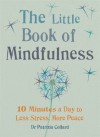Currently reading




ignore the trigger warnings and read this book

This was simply the best most profoundly moving book I've read in years. Possibly ever. Where do I begin? It's tragic, yet not sad. It's hopeful, yet not optimistic. It's a long book that you hope will not end. More than anything, it forces the reader to confront some very difficult questions about life, happiness and our obligations to one another. Given the dark subject matter permeating the story, it seems absurd to say that a A Little Life was all win for me, but truly it was. There is much to discuss about the writing, the characters, the pacing, and the depiction of relationships, which were all fantastic. But more than anything, I am left dumbstruck as A Little Life hit a bone and touched me on a deeply personal level.
Hanya Yanagihara's writing style is simple and intimate. It's peppered with SAT vocabulary words, which actually seems quite fitting, given that the characters are part of the ambitious intelligentsia. The portrayal of relationships and character interaction is superb and you the reader are right in the room for every scene. The author zigs and zags in time a bit, but major story arc moves linearly starting with four friends making beginning their post-college lives in New York City. While the story told predominately from Jude's POV, there is a bit of head hopping that happens, and really I found it refreshing to get a brief change in narrator.
A central theme is the sharing of your secrets, if, when and how. While it becomes apparent that Jude’s past is the 800 pound gorilla in the room, it goes largely unacknowledged. It’s almost as if they suffer of a case of over-politeness and won’t just say, “hey Jude, what’s the deal with wearing long sleeves to the beach?” There are reasons why these discussions don’t happen and they have to do with Jude's careful orchestration of his life and friendships so that his past stays exactly there. I loved how the author didn’t just blurt out Jude’s past, instead she served it to the reader in a slow and measured fashion. Even after reading 700+ pages, there are still questions I have about his past.
One niggle that I had with the story was that Jude's childhood and back-story seemed a bit improbable. Where were social services? Would a monastery simply adopt a baby without making an effort to place him in a good Catholic home? If these kinds of things eat you up, you might be frustrated. I decided to take the Frozen route and I let it go. Interestingly, I listened to a podcast interview with the author and she brought up this very point. Her comment was that everything that happened to Jude was plausible. It wasn’t typical, but within the realm of possibility.
So we get to see how Jude’s trainwreck of a childhood turns into a rather charmed adulthood. We delight in seeing Jude have things he never had, friends, a home, professional success, love, and even parents. In spite of many wonderful things that happen (view spoiler) Jude remains incredibly broken. Probably the most profound and painful passages were watching how Jude's loved ones tried, but weren't ever able to completely break through. Willem came came the closest. Willem is a unicorn sent from heaven, that man could do no wrong.
All this brought me to confront the question, how do we deal with those who are hurting? If they are sick, we care for them. It’s what we humans do. However, when it comes to mental health that which seems straightforward to the healthy can be simply impossible for the traumatized. Mental heath treatment seems so simple, go to therapy, take some meds and bingo, problem solved. Only it's not simple, and it can't be forced, and it's all too easy to become frustrated and arrogant about knowing what's best. But try you must. Put perfectly by Willem:
How can you help someone who won’t be helped while realizing that if you don’t try to help, then you’re not being a friend at all?
It's something I personally struggle with, and I am grateful for Jude's story to help me understand this better.
It was impossible to explain to the healthy the logic of the sick, and he didn’t have the energy to try.
People had always decided how his body would be used, and although he knew that Harold and Andy were trying to help him, the childish, obdurate part of him resisted: he would decide. He had such little control of his body anyway—how could they begrudge him this?
I don’t think happiness is for me, Jude had said at last, as if Willem had been offering him a dish he didn't want to eat. But it’s for you, Willem.
It had always seemed to him a very plush kind of problem, a privilege, really, to consider whether life was meaningful or not. He didn't think his was.
Rest assured, for every dark, disturbing passage, there were lovelies to be found relating to friendship, adulthood, family, and life in general.
He experienced the singular pleasure of watching people he loved fall in love with other people he loved.
It had seemed to him the ideal expression of an adult relationship, to have someone with whom you could discuss the mechanics of a shared existence.
Trigger warnings be damned, go out and read this book.
 1
1


